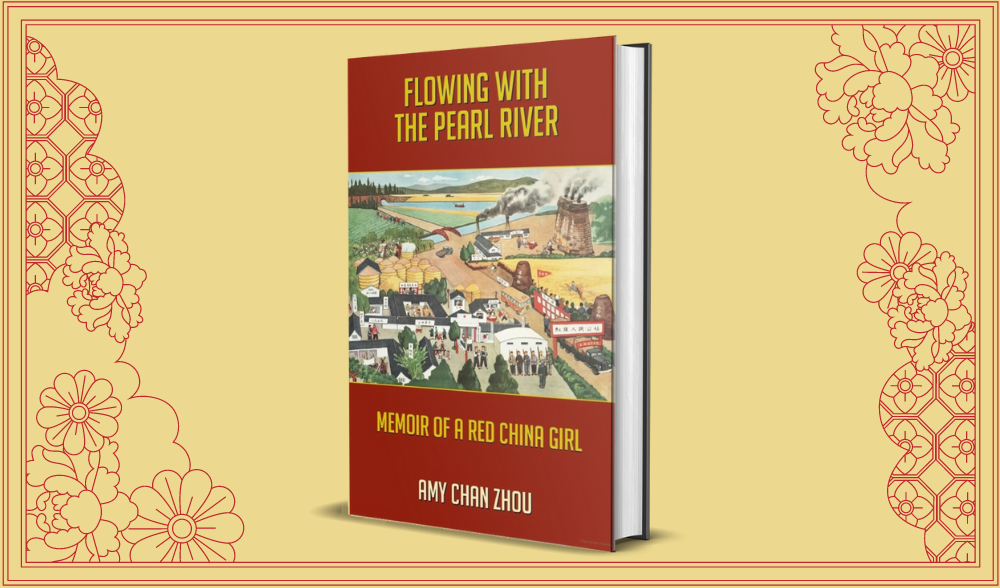ALEC FARMER WRITES – The Cultural Revolution was a notorious period of China’s history that has been analyzed time and time again worldwide. The strict policies of Mao Zedong shattered the livelihoods of China’s citizens. Few people remain who can tell their stories of that dark and turbulent period. In the eyes of Chinese author Amy Chan Zhou, “The history of the Cultural Revolution has faded with time and has been gradually lost.” But Zhou’s memoir, Flowing with the Pearl River (2022), seeks to keep her family’s story of the Cultural Revolution alive for future generations by offering contemporary readers an admittedly small but emotionally impactful understanding of what it was like to live in such a significant time.

Zhou’s memory is precise and nuanced. She was born in Guangzhou, China, in 1964 and thus experienced the Cultural Revolution at a young age. However, Zhou focuses most of her storytelling on her family’s experiences. As a result, the reader becomes attached to her parents, grandparents, and siblings. Many beautiful anecdotes throughout the novel feel personal to Zhou’s specific circumstances but can relate to any reader.
The importance of this book comes from the context in which these stories take place. When the author goes to school, Zhou remarks that “Elementary school was supposed to teach the kids to learn how to read, write Chinese, learn math, and gain general knowledge. But during the Cultural Revolution, the school’s primary objective became to learn Mao Zedong’s thoughts.” The policies put forward by Mao Zedong take on new meaning for the reader as the author’s family is visibly and directly impacted, whether through lack of food, poor living conditions, or persecution.
The strength of Flowing with the Pearl River stems from how it addresses the history of this confusing and tempestuous era of strife for the Chinese people. When viewed from a strictly academic viewpoint, an individual may be unable to connect to or grasp the humanity of those living during Mao Zedong’s reign. Flowing with the Pearl River, and by extension, its author shows that the history of contemporary China in all its complexities cannot be fully grasped from a single story. To fully understand such a time, we must take in as many of these stories as possible while they are still available to us.
“I needed to learn and understand this part of my life and my ancestor’s lives, and I share it with you, dear reader, before the old generations are gone.” Perhaps only deeply compelling narratives, such as Flowing with the Pearl River, and skilled authors like Amy Chan Zhou can keep the lessons, experiences, and stories of our past alive. Surely the brutality of the ten-year-long Cultural Revolution, properly remembered, can inspire us to care even more deeply about our future.

AMI book reviewer, Alec Farmer, recently graduated from LMU with a degree in Film and TV Production and a minor in Asian and Pacific Studies. He has studied contemporary Asian literature and cinema.
Edited by book review editor-in-chief, Ella Kelleher.

